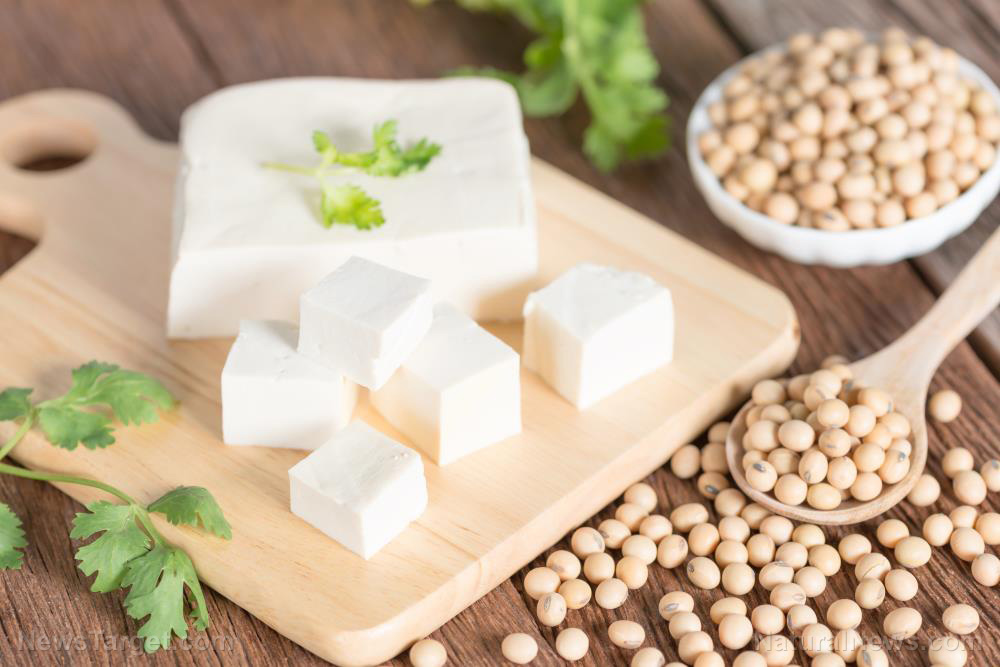
Advertisement
Depending on who you’re talking to, soy is either a superfood or something you should avoid if you want to stay healthy.
The difference lies in what kind of soy products you consume: Organic or processed.
Soybeans are a staple in traditional Asian diets. In modern cuisine, soy is consumed as a source of plant-based protein and as an ingredient in various kinds of processed foods.
The different types of soy
As legumes, soybeans are either consumed whole or processed into different food products.
Whole soy products
Whole soy products, the least processed form of soy, include soybeans and edamame (immature or green soybeans). Both soy milk and tofu are also made from whole soybeans.
In the Western diet, mature soybeans are rarely eaten whole. On the other hand, edamame is a popular high-protein appetizer in Asian cuisines.
Soy milk is made by soaking and grinding whole soybeans. The mixture is then boiled in water, after which the solids are filtered out. People who can’t tolerate dairy or don’t want to consume cow milk use soy milk as an alternative.
Tofu is made by coagulating soy milk. The curds are then pressed into blocks. Vegetarians often consume tofu as a source of plant-based protein.
Fermented soy
Fermented soy products, which are processed using traditional methods. and include miso, natto, soy sauce and tempeh.
Miso is a traditional Japanese seasoning paste. It’s made from a grain (e.g., barley or rice), salt, soybeans, and a type of fungus called koji.
Soy sauce is a liquid condiment made from fermented soy, roasted grains, salt water and a type of mold.
Tempeh is a fermented soy cake from Indonesia. It’s not as popular as tofu, but tempeh is a source of protein for those following vegetarian diets.
Soy-based processed foods
Soy is used as an ingredient for different kinds of processed foods such as cheeses, vegan and vegetarian meat substitutes and yogurts.
Soybean oil, soy flours and texturized vegetable protein are used to make packaged foods.
Soy supplements
Soy protein isolate is a highly processed soy product. It is made by grinding soybeans into flakes and extracting the oil. The flakes are mixed with alcohol or alkaline water and heated.
The resulting soy concentrate is spray-dried into a powder.
The nutritional profile of organic soy
Organic soy contains various nutrients such as vitamins C and K, copper, folate, iron, magnesium, manganese, phosphorus, potassium, riboflavin, thiamine and zinc.
Soy also contains trace amounts of vitamin E and B6, niacin and pantothenic acid.
Unique phytochemicals in soy offer some health benefits, such as:
- Improving fertility outcomes in women.
- Lowering cholesterol.
- Minimizing menopause symptoms.
Harmful effects of soy
Consuming organic soy moderately offers certain benefits. However, its effects on some health conditions have yet to be determined.
Soy affects thyroid function
Soy contains goitrogens. These substances can negatively impact the thyroid by blocking iodine absorption.
Findings from animal and test-tube studies suggest that soy isoflavones block the production of thyroid hormones.
A lot of soy products contains GMOs
Over 90% of soy produced in America is genetically modified. Long-term scientific studies are needed to verify the effects of soy in humans and how much is safe for consumption.
Most genetically modified organisms (GMOs) in soy withstand the harmful pesticide glyphosate. Data has shown that GMO soy products with glyphosate residues have a poorer nutritional profile compared to organic soybeans.
To ensure your overall health, consume organic soy that is GMO-free and grown without pesticides like glyphosate.
Processed soy products such as meat analogs, protein powders, soy bars, or soy yogurts often contain soy protein isolates instead of nutrients from the whole soybean. Like other processed junk foods, processed soy products lack the nutritional quality of organic whole soy products.
Soy is a nutrient-rich food that has many benefits, such as improving cholesterol levels and fertility outcomes and relieving menopause symptoms. If you want to reap the benefits of soy products, consume organic, whole or fermented soy foods in moderation.
Sources:
Advertisements







